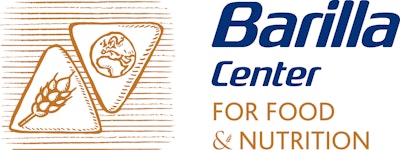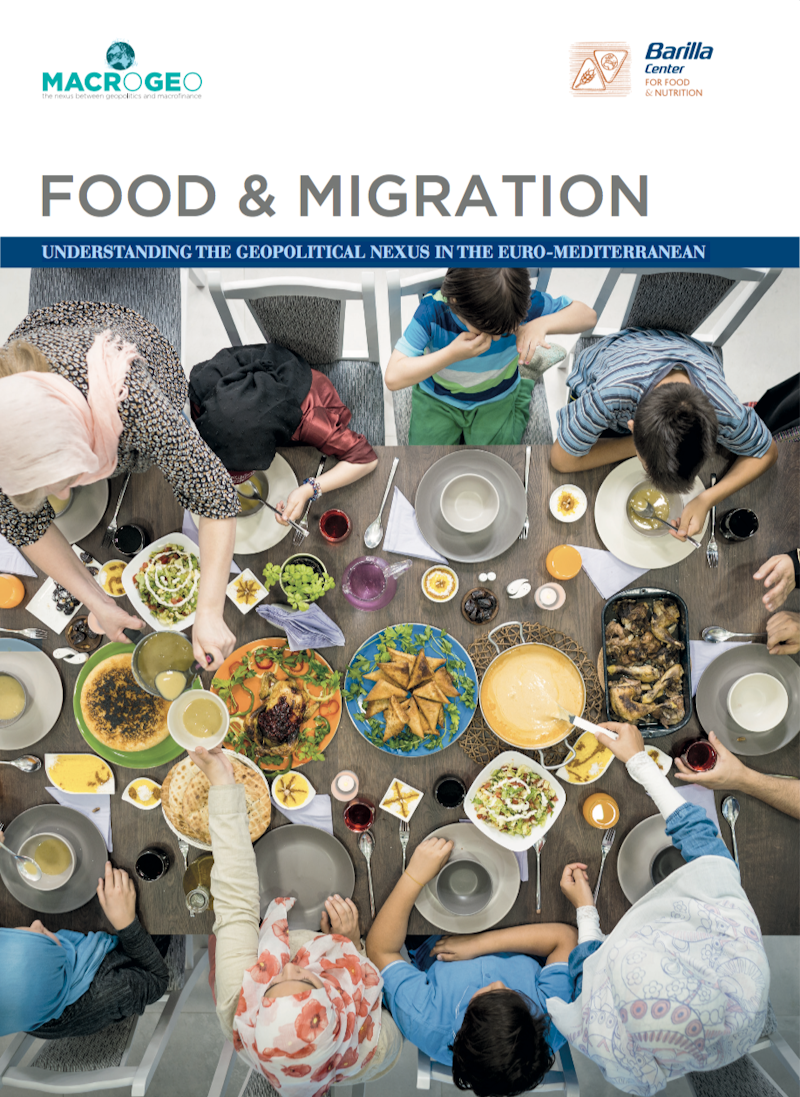Recommendations
This study underlines that migrations flows from Africa to Europe (South-North migration through the Mediterranean Sea) are part of a structural challenge driven by a series of factors: geopolitical, demographic, environmental, and economic.
Food and nutrition are relevant in all the Sustainable Development Goals and they are connected to all main factors driving migration, both in terms of food security and through the strong link between nutrition and human capital.
In the analysis of food and migration, three keywords are particularly relevant.
The first keyword is interdependence. In order to study migration and food, one has to necessarily focus on the existing links between different regions and different cultures, with regard to development, mutual understanding, risks and opportunities.
The second keyword is paradox. There are several paradoxes concerning migration and food to be investigated, while also taking into account the role of FVCs and innovation in order to be lever for local development and to overcome food losses, through the cooperation between producers, processors and distributors.
The third keyword is uncertainty. When it comes to demographics and climate change, scenarios and trends tend to vary greatly, that is why any viable decision making process should necessarily comprise uncertainty treatments.
Against this context, it is essential to stimulate further research on migration and food security, and to build on the increasing scientific and public policy awareness for further public action. It is also necessary to raise awareness on the “migration-food nexus”, reaching out to all stakeholders (Governments, international organizations, NGOs, research centres, think tanks) involved in migration policies, with a specific emphasis on local authorities.
Specific recommendations on the “migration-food nexus” include the following:
1. Migration is a structural phenomenon related to structural trends. In the medium-long term, it is key to invest in the economic and human development of countries of origin, through measures such as an “anti-land seizing” policy, investment in education, research and innovation, as well as the development of sustainable agro-food supply chains. Existing financial tools, both public and private, can be employed in a comprehensive development program. However, differentiation is key. On the one hand, migration issues cannot be dealt just through migration policies. On the other hand, one-size-fits-all policies would not be able to tackle hunger in countries of origin. Starting from the African major players we have identified, it is key to elaborate country-specific strategies, taking account of internal differences.
2. A real partnership approach is needed. Any concerted action should start through real ownership by African countries, and through reinforcement of the role of the African Union (building on the Agenda 2063 of the African Union Commission). Specifically, South-North migration flows should not be considered as a solely European issue – truly global awareness is required. Therefore, a global approach to South-North migration throughout the Mediterranean should involve the main relevant geopolitical players of the area, such as the United States, China and the Gulf countries, given their leverage on cooperation on climate change and their influence on countries of origin of migrants. International cooperation in these areas should take account the 2030 Agenda for Sustainable Development.
3. Following Germany’s “Marshall Plan with Africa”, food and agriculture need to be considered together as one of the key pillars of a new partnership with Africa, in all initiatives aiming for sustainable development in an area stretching from the Middle East to the Gulf of Guinea. In order to help Africa feed itself by mid-century, specific chapters on agriculture (including innovation in agriculture, technology and access to finance), food and nutrition are needed in all policies established by the EU, but also in all Migration Compacts with the countries of origin of migrants, which must emphasize the role of food chains as networks of interdependence. Specific initiatives could include: limiting food loss and waste, enhancing networks of distribution and refrigeration, promoting multi-stakeholder initiatives by food producers, processors and distributors for youth employment and rural development, monitoring and launching joint research and innovation programs.
4. In formulating and implementing climate change adaptation measures, both synergies and trade-offs with environmental impacts and climate mitigation cannot be neglected. The share of agricultural goods devoted to livestock feeding and bioenergy production is already large and potentially rising, with the aim of nourishing an increasing number of people and meeting the targets of climate mitigation, respectively. While this has strong ecological consequences (land and water consumption, greenhouse gas emissions from cultivations, deforestation) and thus calls for consideration of diet shifts and of an environmental-friendly crop farming, the effective sustainability of agricultural production under climate change, if adaptation is not implemented, has to be evaluated. In this context, moving the focus to a smaller spatial extent will allow addressing the large internal heterogeneity of countries, which makes the interior migration not trivial, especially in case of short-term displacements due to more localized extreme events such as floods. Finally, the consideration of alternative borders (e.g. watersheds, agro-ecological zones), rather than administrative ones, can enable the consideration of trans-boundary issues and conflicts, like downstream/upstream competition for water resources and rural/urban share for ecosystem services.
5. Remittances are important in connecting individual savings of migrants and development of the countries of origin and can play a role as enablers of sustainable development. Through leverage schemes by EU and African national promotional institutions and other entities, remittances flows, while continuing to sustain families in countries of origin, should also support specific projects on agricultural development.
6. It is necessary to raise awareness of illegal exploitation of agricultural labor. EU directives and initiatives in this field, also in line with the 20 principles of the European Pillar of Social Rights, should be fully supported and implemented by Member States, through appropriate initiatives on monitoring and enforcement. Moreover, the contribution of all the actors of the supply line is crucial to guarantee that new, subtler forms of exploitation do not resurface under the pressure of market constraints.
7. A key nexus between demography and economic development is the empowerment of women. Therefore, the role of women should be at the centre of any strategy of co-development and sustainable development. Further collaboration is needed to bring higher technical training to women farmers, and further exchange of best practices should aim to empower women as entrepreneurs, scholars and leaders.
8. A research agenda on the “migration-food nexus” in countries of destination is needed. Food has a huge and unexplored potential for integration, by acting as a factor of inclusion. For countries of destination, migration policies should not be limited to services in hosting migrants. 1 Any national strategy on migration in EU countries should also involve integration policies which require linguistic and cultural investments, and also projects on vocational training. In all of these areas, food and nutrition require specific attention. It is also important to monitor the impact of different initiatives currently in place to foster integration through food by gathering relevant data and boosting knowledge sharing among different stakeholders.
9. The development of sustainable, integrated, profitable and entrepreneurial agrofood value chains in the Mediterranean can play a major role in order to stabilize migration flows by improving food security, rural development and smallholder livelihoods. The establishment of collaborative partnerships between all players in food value chains, as well as across different countries in the Mediterranean, is essential to foster innovation in the agrofood sector and to implement the 2030 Agenda, also facilitating the exchange of knowledge and best practices.
Notes
1. Migration policies should consider more thoroughly the issue of distributing migrants – for instance, through the so-called “Königstein key” (the quota of asylum applicants calculated on an annual basis in Germany in relation to each Land, combining total tax revenues and population numbers).


